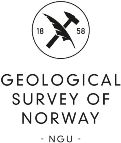

|
Norsk versjon | ||||
| THE INDUSTRIAL MINERAL DATABASE | |||||
| Deposit Area 1854 - 335 | |||||
| (Last updated 24.feb.2004) | |||||
Name of Deposit Area : Filtind |
| (Object Id : 1854,335,00,00) |
| Location |
| County : | Nordland (18) | Municipality : | Ballangen (1854) |
| Map 1:50000: | Frostisen (1331-2) | Map 1:250000: | Narvik |
| Marking point: | Longitude: | 17.1462410 | Latitude: | 68.1182530 |
| EU89-UTM Zone 33 | (Coordinates NOT confirmed) |
| X-coord: | 589250 m. | Y-coord: | 7557599 m. |
|
|
| Commodity |
| Main Type: | Olivine | Sub Type: | Ultramafic (unspec.) |
| Importance |
| Public: | Not Assessed (reg. 18.02.2015) |
| Economical: | Not classified/evaluated |
Mineralization |
| Era: | Period: | |||
| Dating: | Method: | |||
| Genesis: | Form: | |||
| Main texture: | Min. distribution: |
| Main grain size: |
| Strike/Dip: | Direction: | |||
| Plunge: |
| Stratigraphic classification of host rock |
| Era: | Period: |
| Province: | ||
| Geotec.unit: | ||
| Tectonic complex: | ||
| Igneous complex: |
| Group: | Formation: |
Bibliography: |
| From NGU's Reference Archive: |
| Foslie, Steinar , 1941 |
| Tysfjords geologi. Beskrivelse til det geologiske gradteigskart Tysfjord. |
| ;Norges geologiske undersøkelse;KARTBESKRIVELSE; TIDSSKRIFTARTIKKEL;NGU; No.149;1-298 + p pages |
| Abstract: | |
| The situation of the map Tysfjord is shown on p. 10. It comprises a very rugged country between the coast and the frontier, with several glaciers and mountains up to 1744 meter. The present paper contains the geomorphology, general geology, tectonics and glacial geology of the district, further the history of mining, a full description of all the non-metallic mineral deposits and of those ore deposits, which are restricted to this map area. The petrology and the rock analyses (amounting to more than 30) are reserved however for a special paper dealing with a wider district. The same is the case with the main ore deposits in the northern part, extending outside the map area. A main feature of the geomorphology of the district is the extreme westerly position of the main Scandinavian watershed. Its distance from the head of some of the present fjords is only 3 km, and in late glacial time this distance in one place was only 1 km. From here the water runs 350 km eastwards to the Gulf of Bothnia. There is scarcely to be found a parallel elsewhere to such an extreme position. The sceneries on both sides of this watershed are widely different. |
| The fact sheet was created on 17.05.2024 |
| Questions or comments regarding the fact sheet can be emailed to: ressursdatabaser@ngu.no |
| Copyright © 2024 Geological Survey of Norway |